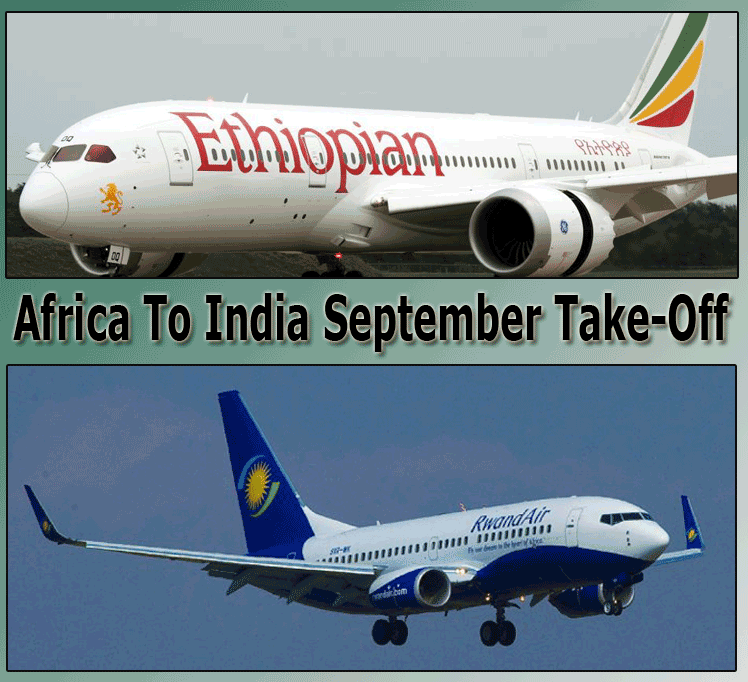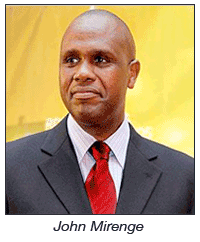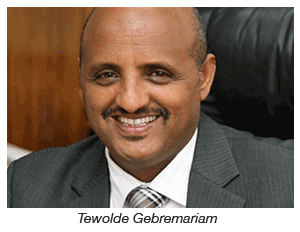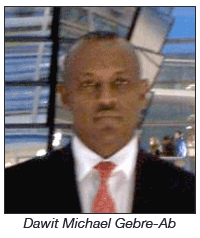
In the
next few months RwandAir and Ethiopian Airlines expect
to formally establish a strategic partnership that would
see the two African carriers working closely together.
Under the terms of a deal provisionally reached earlier
this month, Ethiopian Airlines will acquire a 49 percent
stake in the smaller RwandAir, giving it the opportunity
to create a new east African hub in the Rwandan capital
of Kigali.
 RwandAir
will begin flights to Mumbai in September of this year,
marking another milestone in India–Africa relations. RwandAir
will begin flights to Mumbai in September of this year,
marking another milestone in India–Africa relations.
The four weekly flights
between Mumbai and Kigali with a stopover in Dar-es-Salaam,
Tanzania, will increase business opportunities and tourism
and strengthen relationships between the two nations.
Announcing the flights,
RwandAir CEO John Mirenge said “this is a big
milestone for the airline as we continue to expand and
open Rwanda to the world.”
Mirenge had also pointed
out that Mumbai was selected to be “our first
long haul destination and will definitely connect the
people of Rwanda and India together” as the carrier
introduced widebody aircraft in the fleet.
From Kigali, its hub in
the heart of Africa, Rwanda was the first African country
to initiate road shows to promote tourism and investment
opportunities in Mumbai and Bangalore after the October
2015 India-Africa summit in Delhi.
Ethiopian
Freighters
Addis Ababa-based Ethiopian
Airlines continues to be bullish on India.
 With
an eye on India’s growing aviation market, Ethiopian
Airlines has chalked out plans to expand operations. With
an eye on India’s growing aviation market, Ethiopian
Airlines has chalked out plans to expand operations.
The carrier presently
operates freighter services to Chennai, Bengaluru, New
Delhi, and Mumbai along with a daily double passenger
service to New Delhi and Mumbai from Addis Ababa.
It has held talks with
the Indian Directorate General of Civil Aviation (DGCA)
to start passenger services to Chennai.
The talks follow the bilateral
pact signed last year between India and Ethiopia that
allows carriers from the two countries to increase the
number of weekly flights from 21 to 28.
According to Ethiopian
sources, the carrier wants to expand its freighter flights
to Bangalore and add Hyderabad and Ahmedabad.
Ethiopian Airline’s
CEO Tewolde Gebremariam said:
“India is among
the top ten markets for Ethiopian Airlines and it is
trying to expand this further.”
The carrier has focused
on Bangalore for its IT and biotech units. In addition,
the city is the epicenter for a number of international
companies.
Air
Djibouti Adds Up
 Air Djibouti, the national
airline of Djibouti, says it is seriously looking at
cargo services from India (Air Djibouti was relaunched
with management from the Wales-based Cardiff Aviation,
which was founded by English heavy metal band Iron Maiden’s
Bruce Dickinson). Senior Director of Strategic Planning
Dawit Michael Gebre-Ab notes that India’s trade
with Africa was still in its nascent stages and there
was room for growth. Air Djibouti, the national
airline of Djibouti, says it is seriously looking at
cargo services from India (Air Djibouti was relaunched
with management from the Wales-based Cardiff Aviation,
which was founded by English heavy metal band Iron Maiden’s
Bruce Dickinson). Senior Director of Strategic Planning
Dawit Michael Gebre-Ab notes that India’s trade
with Africa was still in its nascent stages and there
was room for growth.
In fact, India-Africa
trade was only $70 billion per year while Djibouti trade
with China hovered around the $200 billion-per-year
mark.
According to a study by
the UN Economic Commission for Africa and the Confederation
of Indian Industry, Africa accounted for 11 percent
of India’s exports and 9 percent of its imports
in 2014.
Since 2010, India’s
exports to and imports from Africa increased by 93 percent
and 28 percent, respectively.
In the meantime, Africa’s
share from India’s total exports has increased
from 8.1 percent to 10.9 percent.
In 2014, India was Africa’s
third strongest trade partner, just after the European
Union and China.
New Free Zone
 Air
Djibouti is banking on its infrastructure to provide
cargo: it will soon have the biggest free trade zone
in Africa. Air
Djibouti is banking on its infrastructure to provide
cargo: it will soon have the biggest free trade zone
in Africa.
The 150-hectare zone has
created a lot of interest among Indian companies that
want to set up industry there.
The Indian government
is going all out to boost trade with Africa. External
Affairs Minister Sushma Swaraj recently pointed out
that bilateral trade between India and Africa had multiplied
20 times in the last 15 years.
India, she said, was among
the first countries to put a duty-free market access
scheme in place for LDCs (least developed countries).
In 2014, the scheme was
extended to 34 African countries to increase their exports
to India.
TG
|





